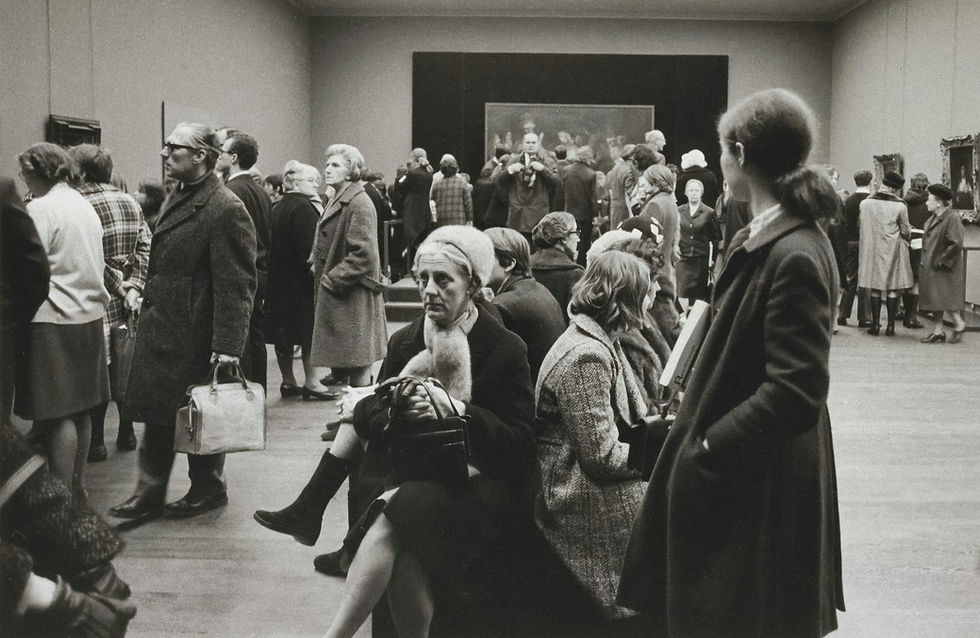Not All Loneliness Feels the Same A breakdown of the different kinds of loneliness we don’t always name
- Suzzanne Suleiman | MS, LLP
- Jun 1, 2025
- 3 min read
When people talk about loneliness, they usually picture someone sitting alone. No plans. No texts. No one checking in.
But the truth is, loneliness isn’t always about being alone. And it doesn’t always look the way you’d expect. Sometimes it hides in busy schedules, crowded rooms, even in relationships that technically “should” feel close.
And here’s why: there are different types of loneliness. And if we don’t know how to name them, we start to think we’re the problem. We assume we’re too sensitive, too needy, or too broken. We tell ourselves, “This shouldn’t hurt, so why does it?”
Here’s what I want more people to understand.
Emotional Loneliness
This is the ache that comes when you lack deep, meaningful connection with someone who really gets you. You might have people around you—but you don’t feel seen. You’re constantly editing yourself, holding back, or walking on eggshells. There’s no one you can be fully human with.
You feel: disconnected even in company, misunderstood, emotionally alone.
Social Loneliness
This is the loneliness of lacking a wider circle—a community, a friend group, a consistent social rhythm. You might have a partner or a best friend, but no crew. No people to grab coffee with or invite to a movie or help you move a couch.
You feel: left out, not anchored to a group, like you’re always on the outside looking in.
Intellectual Loneliness
This kind of loneliness shows up when you have thoughts, questions, or curiosities that no one in your circle shares. It’s the sense that you’re too deep, too intense, too thoughtful—and no one wants to go there with you.
You feel: like you’re “too much,” bored in conversations, or like no one sees the way your mind works.
Spiritual Loneliness
You might be surrounded by people, but feel no one shares your values, your sense of awe, or your connection to something greater. It can feel especially sharp during life transitions, loss, or times of meaning-making.
You feel: adrift, questioning your purpose, longing for something more grounded or sacred.
Relational Loneliness
Sometimes you’re in relationships that look connected from the outside—but the emotional reciprocity is gone. You might be partnered, but feel invisible. Or be the “strong one” in friendships, but no one checks on you.
You feel: over-giving, unseen in your roles, stuck in dynamics that feel one-sided.
Existential Loneliness
This is the quiet, often unnamed awareness that no one can fully walk your path but you. It’s a part of being human—knowing that even when loved, there’s a part of your experience that can’t be completely shared.
You feel: a subtle grief or isolation even in moments of connection. It’s not wrong—it’s real.
Why This Matters
When we don’t know what kind of loneliness we’re feeling, we start to blame ourselves.
But when we name it clearly, we open the door to addressing it. To saying, “I don’t need just more people—I need more depth.” Or, “I don’t need a partner—I need a tribe.”
Loneliness is not a failure. It’s a signal.
It’s your nervous system whispering, “You were built for connection—and something is missing.”
And when we stop pretending we’re fine, when we name what hurts, we make space for real connection to meet us.
Because understanding loneliness is how we start to heal it.
You are not too much. You are not too late. You are not alone in feeling alone.
Let’s talk about this more. Let’s name it, so we can heal it—together.
PS: You are not alone.



Comments